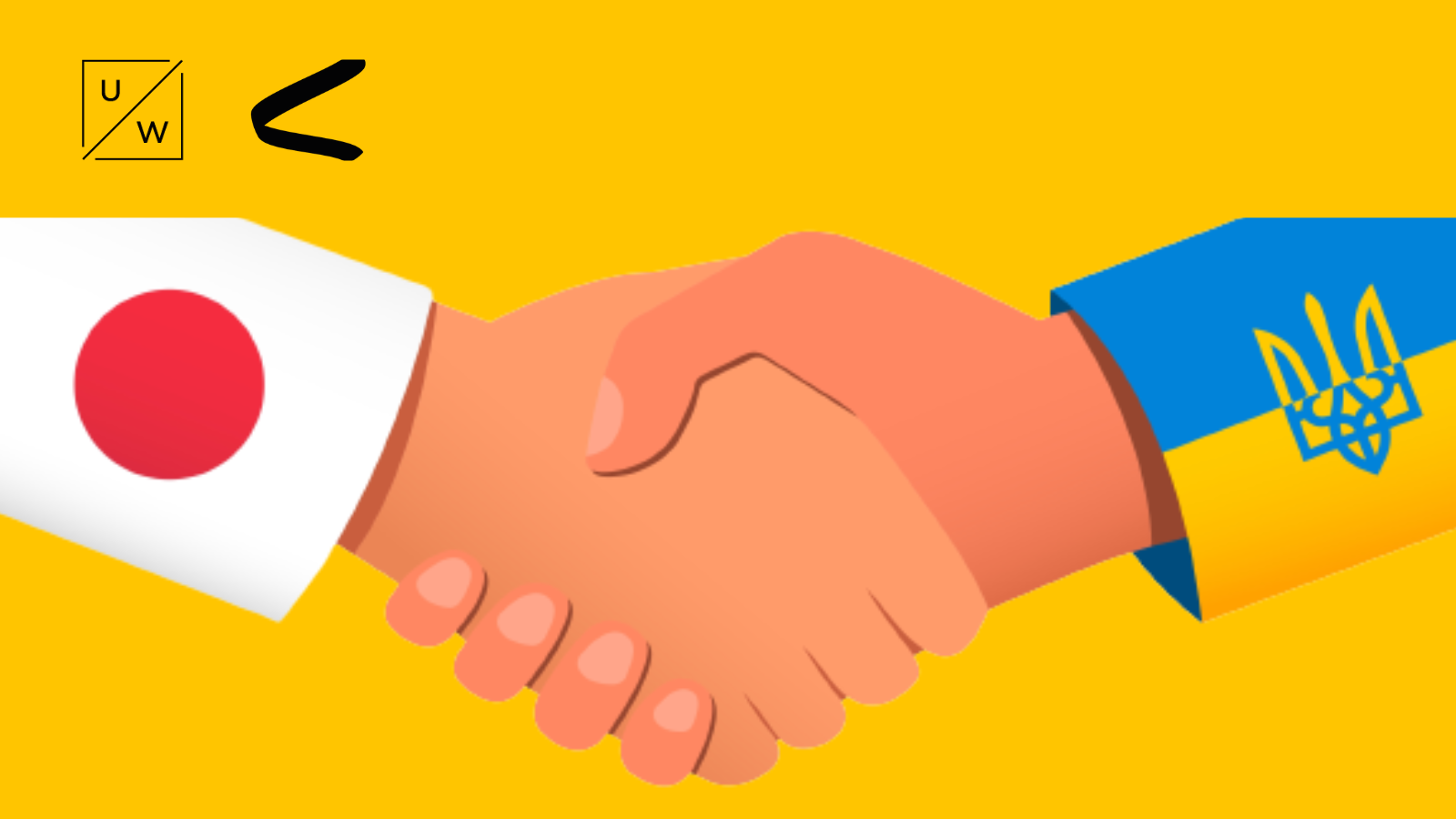What is Japan’s policy on the Russian-Ukrainian war? – UkraineWorld talks to Sergiy Korsunsky, Ambassador Extraordinary and Plenipotentiary of Ukraine to Japan.
Key points from our discussion, #UkraineWorldAnalysis
1. On Japan’s policy towards Ukraine
- Japan is supporting Ukraine politically and economically, is providing different forms of humanitarian aid, and is also aligning its Ukraine policy with other G7 members. Japan’s financial aid to Ukraine has amounted to $700 million: $500 million in budget support and $200 million in humanitarian aid.
- For the first time in its history, Japan has provided military aid to Ukraine (fire/chemical protection equipment, military clothing, body armor, & helmets). Lethal aid will not be forthcoming, as Japan's post-war constitution prohibits the country from supplying weapons.
- Japan has granted refugee status to 1,600 Ukrainians. The Japanese program for temporarily displaced persons provides for 1) a permanent residence permit; 2) the right to work; 3) the right to free education in schools for children; 4) Japanese language courses.
2. On Japan’s policy towards sanctions against Russia
- Japan has introduced 13 rounds of sanctions against Russia, including 1) personal sanctions against V. Putin, members of the government, and the State Duma. 2) freezing of assets; 3) termination of cooperation with banks; 4) Suspension of trade in cars, gold, and oil.
3. On Japan’s policy of Ukraine’s promotion in Southeast Asia
- Japan is conducting active diplomacy with India and the countries of Central and Southeast Asia, convincing them to support Ukraine. It is especially focusing on the countries that have voted for Russia in the UN or abstained.
- In Southeast Asia, Ukraine is supported by South Korea, Singapore, Micronesia, and Taiwan. Some, like Vietnam, India, and Myanmar tend to support Russia’s position or stay “undecided” because they are dependent on Moscow for weapons supplies, and there is mistrust of the Western countries.
4. On the military tensions in Southeast Asia
- Japan has 3 potential assertive states as neighbors: Russia, China, and North Korea. Japan has territorial disputes with China over the Senkaku Islands and Russia over the Kuril Islands. Japan considers the Kuril Islands illegally occupied territory and insists on their return.
- North Korea, China, and Russia provoke Japan militarily by conducting joint military exercises, launching missiles, and flying warplanes near its borders. The US guarantees Japan’s security by stationing a 50,000-strong military contingent and the US 7th Fleet in the country.
5. On Ukraine’s policy towards Japan
- When I came to Japan as an ambassador in October 2020, I saw that Tokyo treated Ukraine as a friendly country, but there was no special interest in Ukraine. I had a plan to revive cooperation, especially in the economic field.
- In 2021, for the first time in the history of bilateral relations, the Minister of Defense of Ukraine visited Japan. President V. Zelensky’s speech to the Japanese parliament in late March was the first and only case of a speech there by a foreign leader.
- Regarding cooperation in the educational and scientific fields, 35 Japanese universities accept Ukrainian students. Every week, I speak at universities in Japan. 4 books dedicated to Ukraine have just recently been published. Japanese students have a sincere interest in Ukraine.
6. Conclusion
After the war, Ukraine will have strategic relations with Japan.
This material was prepared with financial support from the International Renaissance Foundation.

